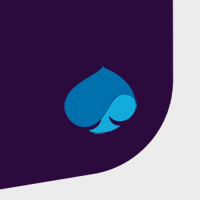Why Is It Important to Understand How Blockchain Works?
Do you understand the inner workings of the internet? I don’t. But: I do know what you can do with it. And what you can do with blockchain technology is the simplest concept ever to grasp. So let go of trying to understand the inner complexity for a couple of minutes and read on!
~ Written by Joleen van der Zwan.

Let me start with a personal (and very analogue) anecdote: A couple of years ago, I was on Gili Air, a small island in Indonesia near Lombok. In most places, you can only pay by cash. One evening, I visited both ATM’s on the island, and found them empty. While walking back to my hotel I saw a small boat nearing the beach. There is no harbor or jetty on the island. The way to get there is to beach your boat, roll up your pants, jump out and wade through the surf. I saw two guys in dark blue uniforms with two black suitcases each do just that. They were unarmed and totally at ease. I waited for them to fill up the machine, got out some money and went for dinner.
In Kenya, most international business payments were conducted in a similar way. To make a payment to Chinese contractors, someone would go to China by airplane with a suitcase full of money. Banks just weren’t capable of conducting the international payments because they could not deal with the complexity of the systems involved. Bitpesa, founded in 2014, built an app that buys Bitcoin with your Kenyan shillings and sells them instantly for Chinese yen. In 5 to 12 minutes your payment is made for a fee of around 3%.
But would this apply closer to my home? Where we have all these reliable banks with their reliable systems and regulators? Well, 4 big banks; Santander, BNY Mellon, Deutsche Bank and UBS, plan to have their own cryptocurrency on the market in 2018. They expect to save billions. Visa has a similar solution, Visa B2B connect in pilot phase. They have the exact same goals: to realize international payments faster and cheaper.
Money is not the only stuff that represents value and changes owner. Because that’s exactly what you can do with blockchain: We have always been able to exchange physical things one on one. Because of its nature you can be sure it changed owner, one party didn’t spend it twice or keep a copy. No need for a third party. This was never possible with digital assets. Think of music or movies that can be copied infinitely. It’s called the “double-spend” problem. This is exactly what blockchain solves.
Dutch startup GUTS, for example, uses blockchain technology for selling digital concert tickets. Previously, these were sensitive to fraud and resell on the black market. When scarce, they would sell for multiple times the original amount. And the same electronic ticket would be sold multiple times, meaning only the first buyer would get in and all others found themselves empty-handed. With GUTS, the e-tickets can be resold safely and only for the original price.
 This works for digital representations of physical things as well. Diamonds, for example, often represent considerable value. They are sensitive to theft and fraud. Everledger makes a unique “fingerprint” of diamonds, measuring 40 data points. Together with the identity of the owner, this is stored on a blockchain. This way, the physical and digital world are linked and ownership of a physical asset is stored and can be transferred digitally. When a stone is stolen, the police report and insurance claim are stored as well. In case of theft or fraud, it will be hard to resell.
This works for digital representations of physical things as well. Diamonds, for example, often represent considerable value. They are sensitive to theft and fraud. Everledger makes a unique “fingerprint” of diamonds, measuring 40 data points. Together with the identity of the owner, this is stored on a blockchain. This way, the physical and digital world are linked and ownership of a physical asset is stored and can be transferred digitally. When a stone is stolen, the police report and insurance claim are stored as well. In case of theft or fraud, it will be hard to resell.
Another interesting case is land ownership. According to economists, it is more important to be able to prove land ownership than to have a bank account in order to be economically affluent. If you can prove land is yours, you can sell it or use it to back up a loan and use the money to invest. However, 1 in 5 land owners worldwide is uncertain about the claim to their land. The government’s administration is a mess, or ownership just isn’t respected. In Ghana it is estimated that around 78% of land ownership is not registered at all. For 17 years there is a project to solve this and get a viable registration up and running, with no effect. The cause is nepotism and fraud. Bitland solves this by registering land ownership using blockchain technology. This way, land regains meaning in the sense of capital.
So, if you like, try grasping one-way encryption, hashing, 51% attacks and proof of work. If not, just focus on the business possibilities. And expand the reach of this wonderful technology!
- Sogeti UKMake an enquiry
0330 588 8000
 Sogeti UKMake an enquiry
Sogeti UKMake an enquiry
0330 588 8000



![[Missing text '/pageicons/altmail' for 'English']](/Static/img/email.png)